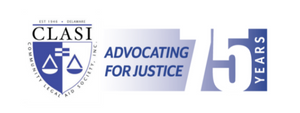-
What does it cover?
-
How does the borrower find out about the program?
-
What does a borrower do when the lender posts a copy of the flyer?
-
What information goes on the form and how do I fill it out?
-
How does the borrower qualify for the program?
-
How long does the borrower have to apply for the program?
-
When does the borrower go to mediation?
-
What happens at the mediation?
-
What happens if we can’t agree with the lender’s attorney on a new payment plan?
-
What if the mediator can’t work out an agreement?
-
Can I still participate in mediation if I do not qualify for the program?
What does it cover?
The program applies to mortgage foreclosure actions filed on or after September 15, 2009. The property subject to foreclosure must be the primary residence of the homeowner. It cannot be a second home, a vacation home or a commercial property.
How does the borrower find out about the program?
The lender must send a flyer approved by the court to the homeowner. The flyer is delivered to the homeowner and posted on the home by the sheriff or a private process server when the “Notice to Lienholders” is delivered. Along with the flyer the borrower will receive a copy of a Universal Intake Form and Foreclosure Intervention Counseling Client’s Checklist.
What does a borrower do when the lender posts a copy of the flyer?
The borrower must contact a HUD-Approved Housing Counselor as soon as possible to schedule an appointment and complete the Universal Intake Form. The borrower may find a housing counselor by calling the Delaware Attorney General’s Foreclosure Hotline (800-220-5424) or by calling a housing counselor directly. The HUD-Approved Housing Counseling agencies in Delaware are:
Statewide
• Interfaith Community Housing
New Castle County – 302-652-3991
Kent/Sussex County – 302-741-0142
• NCALL Research
New Castle County – 302-283-7505
Kent County – 302-678-9400
Sussex County – 302-855-1370
• First State Community Action
New Castle County – 302-498-0454
Kent County – 302-674-1355
Sussex County – 302-856-7761
New Castle County
• Housing Opportunities of Northern Delaware – 302-429-0794
• YWCA – 302-224-4060
• Hockessin Community Center – 302-239-2363
• Neighborhood House – 302-652-3928
• West End Neighborhood House – 302-658-4171
What information goes on the form and how do I fill it out?
The form asks for basic information about the borrower and the co-borrower such as name, address and telephone number. It asks for mortgage loan information as well as information about the borrower’s income, assets and monthly expenses. When the borrower meets with the housing counselor the borrower should try to bring as many of the items on the Foreclosure Intervention Counseling Client’s Checklist as possible. The housing counselor will use these documents to help the borrower fill in the form in order to determine what payments the borrower can afford to make on the mortgage. Once the form is completed the housing counselor will review the information to determine if the borrower qualifies for the Residential Mortgage Foreclosure Mediation Program.
How does the borrower qualify for the program?
After reviewing the information provided by the borrower the housing counselor must determine if the borrower qualifies financially for the program. In order to qualify the borrower must demonstrate that the borrower can make monthly payments on the mortgage that do not exceed 38% of monthly income. In order to do this the housing counselor can lower the percentage rate on the mortgage to as low as 2% and extend the term of the mortgage to a maximum of 40 years. (The lender is not required to accept these changes to the mortgage payment. These guidelines are used only to determine whether the borrower qualifies for mediation.)
How long does the borrower have to apply for the program?
The borrower must meet with the housing counselor and submit the completed Universal Intake Form and a proposal for monthly payments on the mortgage within 15 days of the posting of the notice on the home. The housing counselor must submit the materials to Delaware Volunteer Legal Services and the lender’s attorney before the 15 days expires.
When does the borrower go to mediation?
Mediation is scheduled once a month in the Superior Court in each county. Delaware Volunteer Legal Services will send the borrower, the housing counselor and the lender the date and time to appear for mediation. The borrower will go to the mediation with your housing counselor.
What happens at the mediation?
When the borrower arrives at the courthouse the borrower will find the housing counselor. The borrower and the housing counselor will meet with the attorney for the lender to try to negotiate a payment plan for the mortgage.
What happens if we can’t agree with the lender’s attorney on a new payment plan?
If the borrower and the housing counselor cannot work out an agreement with the lender for new mortgage payments than the borrower can afford, then the borrower will meet with a volunteer attorney mediator. The mediator will work with both parties to try to come to an agreement for a payment plan that is acceptable to everyone.
What if the mediator can’t work out an agreement?
If the mediator cannot work out an agreement then the case can continue to foreclosure. If the borrower filed an appropriate answer to the foreclosure complaint you can defend yourself against the foreclosure.
Can I still participate in mediation if I do not qualify for the program?
You can participate in the mediation program if you do not meet the requirements of 38% of your income, a minimum of 2% interest and a maximum of 40 year loan term. However, in order to participate your lender must agree to participate as well. If your lender does not agree you will not be scheduled for mediation.
